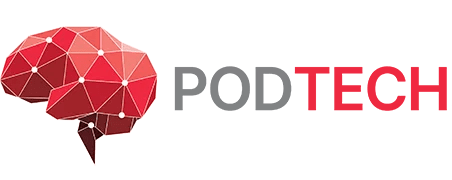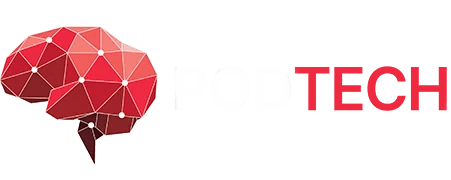Shaping the Future of Software Development: Emerging Trends and Technologies | PODTECH UK
In the rapidly evolving digital landscape, the future of software development is a topic of paramount importance. As businesses worldwide embark on their digital transformation journeys, understanding and adapting to emerging trends and technologies in software development are crucial for maintaining competitiveness and driving innovation. In this comprehensive guide, PODTECH UK delves deep into the future of software development, shedding light on the latest trends and technologies that are reshaping the industry.
The Future of Software Development: A Paradigm Shift
The future of software development is characterized by a paradigm shift driven by advancements in technology, changing market dynamics, and evolving customer expectations. Traditional software development approaches are giving way to more agile, iterative, and customer-centric methodologies that prioritize speed, flexibility, and innovation. At the heart of this paradigm shift are emerging technologies such as artificial intelligence (AI), blockchain, Internet of Things (IoT), and DevOps.
AI in Software Development
AI has emerged as a transformative force in software development, enabling developers to create intelligent, data-driven applications that can learn, adapt, and improve over time. From machine learning algorithms that power predictive analytics to natural language processing tools that enable human-like interactions, AI is revolutionizing how software is built, deployed, and maintained. By harnessing the power of AI, businesses can develop smarter, more personalized software solutions that drive user engagement, enhance productivity, and unlock new revenue streams.
Blockchain: Transforming Trust and Transparency
Blockchain technology, initially popularized by cryptocurrencies like Bitcoin, is now finding widespread adoption across various industries, including software development. Blockchain offers a decentralized and immutable ledger that enables secure and transparent transactions, data sharing, and identity verification. In software development, blockchain is being leveraged to create decentralized applications (DApps), smart contracts, and secure data storage solutions. By integrating blockchain technology into their software products, businesses can enhance trust, transparency, and security while reducing costs and mitigating risks.
Internet of Things (IoT): Connecting the Physical and Digital Worlds
The Internet of Things (IoT) is ushering in a new era of connectivity, as billions of devices and sensors become interconnected and capable of collecting, analyzing, and sharing data in real-time. In software development, IoT presents unprecedented opportunities to create innovative solutions for industries such as healthcare, manufacturing, transportation, and smart cities. By integrating IoT technology into software applications, businesses can improve operational efficiency, optimize resource utilization, and deliver personalized experiences to users.
DevOps: Accelerating Software Delivery and Innovation
DevOps has emerged as a culture, philosophy, and set of practices that aim to bridge the gap between development and operations teams, enabling organizations to deliver high-quality software products at speed and scale. By embracing DevOps principles such as continuous integration, continuous delivery, and automation, businesses can streamline development workflows, reduce time-to-market, and enhance software reliability and scalability. DevOps empowers teams to iterate quickly, experiment with new ideas, and respond rapidly to changing customer needs and market dynamics.
Embracing Change and Innovation
In addition to the transformative technologies mentioned, other emerging trends shaping the future of software development include edge computing and progressive web applications (PWAs). Moreover, ethical considerations in software development are becoming increasingly important, with questions surrounding data privacy, algorithmic bias, and responsible AI deployment. Companies must prioritize ethical considerations in their software development practices to build trust with users and mitigate potential risks.
Looking Ahead: Navigating Challenges and Seizing Opportunities
As we look ahead to the future of software development, it’s clear that the industry will continue to evolve at a rapid pace. However, along with opportunities, there are also challenges that businesses must navigate. Security concerns, data privacy regulations, talent shortages, and legacy systems are just a few of the hurdles that organizations may face on their digital transformation journey. By staying agile, adaptable, and forward-thinking, businesses can overcome these challenges and capitalize on the opportunities presented by emerging technologies.
Join Us in Shaping the Future of Software Development
At PODTECH UK, we are committed to helping UK businesses thrive by providing expert insights, innovative solutions, and unparalleled support. Join us as we shape the future of software development together, navigating challenges and seizing opportunities in the dynamic digital landscape.
In conclusion, the future of software development is a dynamic and ever-evolving landscape shaped by emerging trends, transformative technologies, and evolving customer expectations. By staying informed, adaptable, and forward-thinking, businesses can position themselves for success in the digital age. At PODTECH UK, we are dedicated to helping UK businesses navigate the complexities of the digital landscape and unlock new opportunities for growth and innovation. Join us as we shape the future of software development together.

